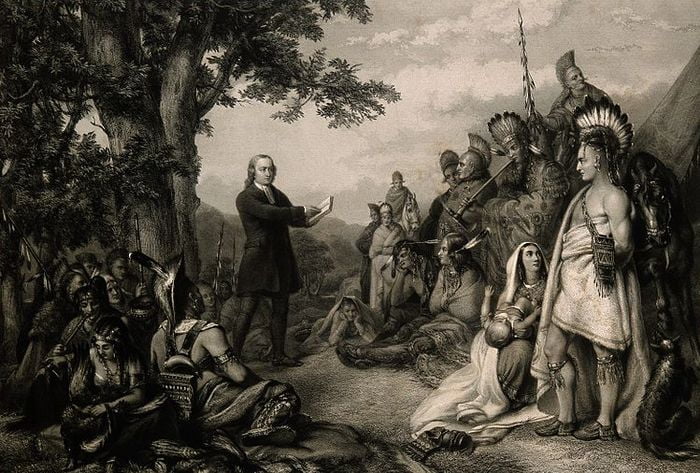Before him along the street passed the flying people men on horse back with their wives behind and children in front, families in carts and wagons, merchants in two-wheeled gigs and sulkies. A huge re’ and yellow stagecoach rolled ponderously by, filled within, on top, in front, and behind with a company of riotous students of law and o~ medicine. A rapid chorus of voices shouted to him as they passed: “Good-bye, Solomon!”
“The cholera `ll have you befoah sunset!”
“Better be diggin ` yoah grave, Solomon! That `ll by yoah last cellah.” “Dig us a big wine cellah undah the Medical Hall while we are away.”
“And leave yo ` body there! We want yo ` skeleton.”
“Good-bye, old Solomon!”
A wretched carry all passed with a household of more wretched women; their tawdry and gay attire, their haggard and painted and ghastly faces, looking horrible in the blaze of the pitiless sunlight. They, too, simpered and hailed him and spent upon him their hardened and degraded badinage. Then there rolled by a high-swung carriage, with the most luxurious of cushions, upholstered with morocco, with a coat- of-arms, a driver and a footman in livery, and drawn by sparkling, prancing horses.
Fine Gentleman
Lying back on the satin cushions a fine gentleman; at the window of the carriage two rosy children, who pointed their fingers at the vagrant and turned and looked into their father `s face, so that he leaned forward, smiled, leaned back again, and was whirled away to a place of safety.
Thus they passed him, as he sat down on the sidewalk even physicians from their patients, pastors from their stricken flocks. Why should not he flee? He had no ties, except the faithful affection of an old negress. Should he not at least save her life by going away, seeing that she would not leave him?
The orphaned children wandered past again, sobbing more wearily. He called them to him.
“Why do you not go home? Where is your mother?” he asked.
“She is dead in the house,” they answered; “and no one has come to bury her.”
Slowly down the street was coming a short funeral train. It passed a rude cortege: a common cart, in the bottom of which rested a box of plain boards containing the body of the old French dancing-master; walking behind it, with a cambric handkerchief to his eyes, the old French confectioner; at his side, wearing the robes of his office and carrying an umbrella to ward off the burning sun, the beloved Bishop Smith; and behind them, two by two and with linked arms, perhaps a dozen men, most of whom had been at the ball.
Read More about Mystical Bulgaria Tours








